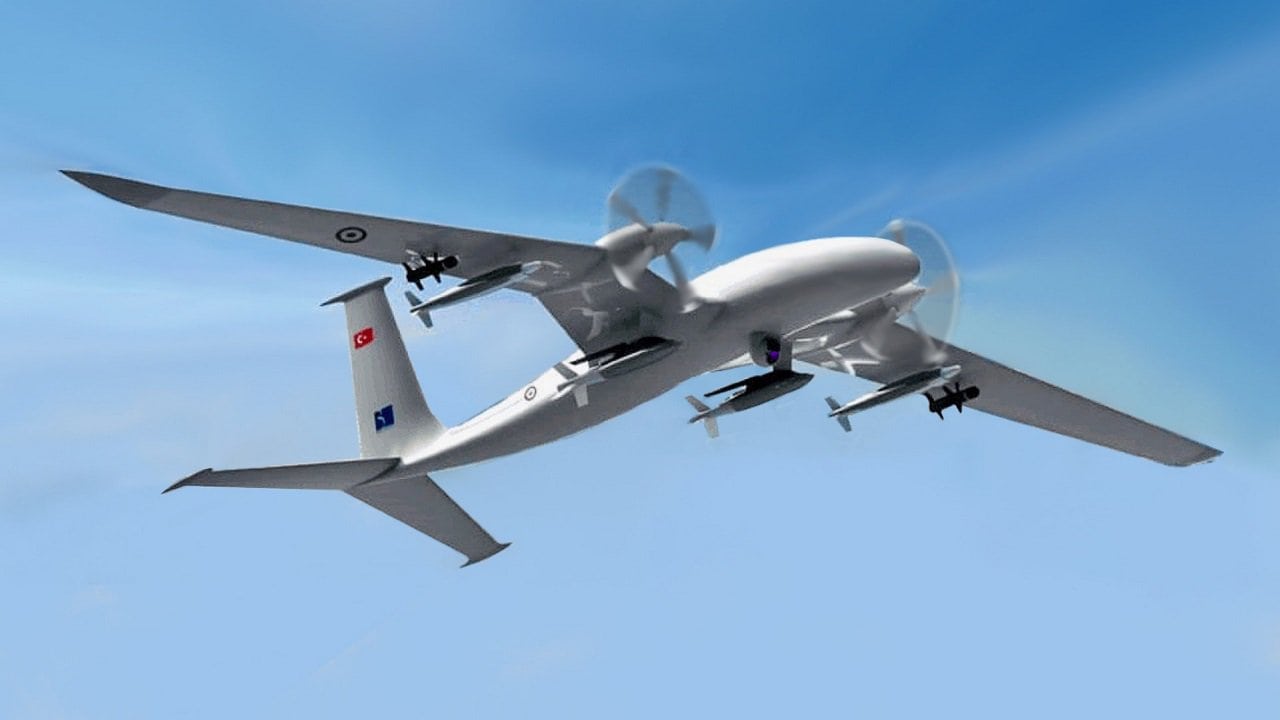Saudi Arabia and a leading drone manufacturer from Turkey have entered into a strategic pact to establish domestic production for unmanned aerial vehicles (UAVs) in the Saudi Kingdom.
This collaboration, announced on August 7, is an extension of a key agreement inked in mid-July. The deal with Baykar will bolster SAMI’s (Saudi Arabian Military Industries) involvement in advancing the domestic defense industry and reinforcing Saudi’s indigenous capabilities.
This announcement was shared on platform X, previously known as Twitter. In addition to the core agreement, the partnership involves a crucial technology transfer aspect.
Following the signing of the memorandum of understanding (MoU) with Turkish defense firms on August 6, Saudi Arabian Military Industries (SAMI) has declared that a considerable proportion of the Bayraktar Akinci unmanned aerial vehicles (UAVs) intended for the Saudi military, potentially up to 70%, will be manufactured domestically.
The announcement of Saudi Arabia’s procurement of Bayraktar Akıncı drones for its air and naval forces was made on July 18. Haluk Bayraktar, the CEO of Baykar, the manufacturer of these UAVs, hailed it as “the biggest defense and aviation export contract in the history of the Republic of Turkey.”
The event, which took place in Riyadh and was organized by Saudi Arabia’s Defense Ministry, was also a platform for several prominent Turkish defense contractors, including Aselsan and Roketsan, to establish fresh agreements.
برعاية سمو #وزير_الدفاع؛ يسرنا أن نعلن عن توقيع اتفاقية توطين استراتيجية مع شركة @BaykarTech التركية، لتوطين صناعة الطائرات المسيَّرة "Bayraktar Akinci" والأنظمة المكونة لها داخل المملكة، إذ ستُعزز هذه الاتفاقية دورنا في دعم صناعة الدفاع الوطنية وتعزيز قدراتنا المحلية. pic.twitter.com/9mBWNBflh5
— SAMI (@SAMIDefense) August 6, 2023
Among these agreements, Aselsan and Roketsan entered into a memorandum of understanding with the National Company for Mechanical Systems (NCMS), an entity dedicated to conducting research and studies to localize technology within the kingdom.
Addressing the signing ceremony, Haluk Bayraktar, the General Manager of Baykar, emphasized that the agreement signifies a pivotal milestone that reinforces the collaborative relationship between Turkey and Saudi Arabia.
He further highlighted that nations involved in developing novel technologies not only accrue benefits but also foster deeper connections with their allies. According to Bayraktar, this agreement marks a new chapter in this direction.
“We have and will continue to share innovative technologies, including Bayraktar Akıncı. The development of a high-tech platform such as Bayraktar Akıncı is undoubtedly invaluable,” he noted.
Turkey’s Bayraktar Akinci UAV
Introduced as Turkey’s most cutting-edge drone, the Akıncı was initially delivered to the Turkish security forces in the latter part of August 2021. As stated by Baykar, the manufacturer, the drone has already been purchased by six nations so far.
The drone exhibits the remarkable capacity to carry a maximum payload of 1,350 kilograms, accommodating a diverse selection of weapon configurations.
These encompass a range of armaments, spanning from missiles to long-range stand-off weaponry and precision-guided laser-equipped munitions.
Notably, the drone possesses the capability to effectively launch the Stand-Off Missile (SOM), an air-to-surface cruise missile with an extended range developed by Roketsan.
Akıncı is a successor of Baykar’s TB2, a widely utilized drone that has found its way into the arsenals of various nations, including Ukraine, Qatar, Azerbaijan, and even NATO-affiliated Poland.

Gaining international recognition, TB2 has been prominently featured in conflicts across regions like Syria, Libya, and Azerbaijan, thereby exponentially boosting its demand. The drone’s significance further soared when Ukraine’s military employed it to counter Russian forces.
Baykar has secured agreements to sell TB2 to at least 30 countries, including four NATO member states and two countries within the European Union. Most recently, Baykar sealed a drone deal valued at $367 million with Kuwait.
Although the specific quantity of Akıncı drones to be procured under the Saudi agreement has not been disclosed, it can be presumed to be significant.
These agreements underscore a remarkable trend: the prominent Arab Gulf states have swiftly emerged as the primary customers of Turkish drone technology within a remarkably short period.
The Saudi Arabian and Emirati governments earlier favored the acquisition of Chinese-made drones, most notably exemplified by the Wing Loong II model. These Chinese drones gained notable visibility by participating in active combat zones like Yemen and Libya.
However, the once-prevailing interest in Chinese drone technology has declined, primarily due to the TB2 drone’s rapid and remarkable ascendance in the global market.
This shift highlights the growing appeal and preference for the Turkish-made TB2, which has effectively outshone the previously favored Chinese counterparts in terms of both capabilities and adoption.
- Contact the author at ashishmichel(at)gmail.com
- Follow EurAsian Times on Google News